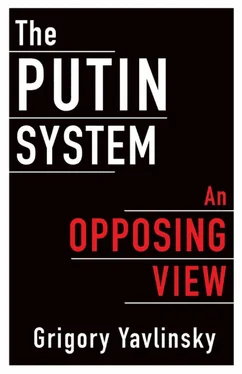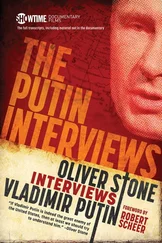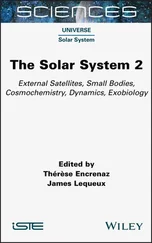All of these changes have affected not just the group of countries known as the West but also their relationships with the rest—the nations on the periphery of global capitalism. To conceptualize the potential impact of these changes upon Russia and its position in the world, we need to get a better grasp of what Russia’s political class is and how it relates to the political regime that has taken shape in the country. All of this constitutes the purpose of this book.
Let me make a few additional remarks of a general nature before moving on to this book’s main argument. First of all, it is obvious that not everything in a given society is reducible to its economic foundations. While, at least in theory, Marxism leaned more toward economic determinism than any other school of thought, even Marxists allowed for considerable variations in the relation of the “political superstructure” to its “economic basis” (even though the meaning and the functionality of the superstructure in Marxism was extremely narrow and was reduced to servicing and sustaining the dominant property relationships in a given society).
As for the present-day notions of the political structure of society, they tend to posit merely indirect or the most general causal connection between the economic relationships and institutions prevalent in a given society and the principles and practices of its political governance. Thus, for example, there is a widespread assumption that economic competition has an inherent relationship to the existence of political competition in society, while economic rights and freedoms closely correlate with civil liberties and political freedoms and are guaranteed or preconditioned by them. It is also widely held that attributes of a political system such as universal voting rights and the separation of powers guarantee the free development of the markets and their mechanisms, while also counteracting excessive concentration of property ownership in the hands of the few and the emergence of monopolies. Finally, it is explicitly or implicitly accepted that competition always and everywhere leads to improved efficiency, both in the economy and in political governance.
Undoubtedly, at a sufficiently high level of abstraction, all these relationships apply. A great number of scholarly works establish these relationships with “scientific validity,” using mathematical frameworks to perform analysis of carefully selected and suitably interpreted statistical data. Yet such causal relationships are more a matter of worldview and are largely theoretical. To assert that a classical market economy with a prevalence of private property ownership and a liberal political system of free and unregulated competition among ideas, citizens, and their associations are two sides of the same coin would be a stretch and would greatly oversimplify the tricky and at times less than fully rational configuration of societal relationships in real life.
The economic relations and the political system of a given society have an impact on each other, but in reality this impact is not so simple. First and foremost, it is never as rigid and unequivocal as some claim it to be. The causal relationships noted earlier are not deterministic but rather probabilistic; further, they can be found only across large samples of units of analysis, selected according to intentionally specified criteria. Thus, in spite of the efforts to prove the validity of these relationships with sophisticated math, they essentially remain hypothetical. And they may very well prove to be false, if the set of data used for the analysis is selected and prepared in a different way or if an attempt is made to test them over a longer period of time.
In this regard, a lot depends upon the interpretation of the meaning and the functioning of specific institutions, and this interpretation, in turn, greatly depends upon the interpreters’ interests and biases. This is even more the case when we deal with such intrinsically subjective notions as freedom or the lack thereof, democracy, legitimacy, and so on. Besides, political and economic institutions influence each other, and not necessarily in any one direction. Thus, economic factors may be objectively pushing political institutions to develop in a certain direction, but these institutions themselves may, for whatever reasons, be developing in the opposite direction, while exerting a pressure on the economy to place it in the framework of a different kind of relationship. Otherwise, we would not be observing such a wide variety of disparate and eclectic models of political governance as we see today, with the coexistence of heterogeneous principles and mechanisms that at times operate in mutually incompatible directions.
One way or another, in reality, the system of relationships in any given society is always complex and can never be precisely and adequately described with two or three commonplace labels or characterizations. Trivial as it may sound, life is indeed always richer, as the expression goes, than can be captured by any schematic representation. And the direction of the dynamics, let alone the long-term developmental trends, cannot be grasped or identified in the short term but only from a sufficient historical distance.
Going back to our discussion of Russia’s capitalism in its post-Soviet “edition,” it is notable that, even now, more than two decades since it began taking shape, the prospects of the further evolution of its political superstructure and of its capacity to ensure the country’s economic and social development are still far from clear. It is true that a lot is now clearer than it used to be, especially in comparison to how things looked around the year 2000 or 2005. Some of the potential directions and opportunities available back then were not utilized. Many of them have entirely disappeared from the horizon, forever—or at least for a very long time. Others, to the contrary, have turned into the most plausible and even unavoidable scenario of Russia’s prospective political development, which is going to mold and adjust the road map of Russia’s potential options and developments at any given time. And yet the country’s future is still not fully clear and is still indeterminate.
I certainly anticipate many objections to this statement. Critics will point out that, throughout the past decade, Russia’s political institutions have evolved in a rather clear direction. Namely, genuine political competition has been increasingly curtailed; the checks and balances, to the extent and in the forms that they existed in Russia at the turn of the twenty-first century, have been eliminated; and the activities of political parties and of the legislature and the everyday implementation of the laws have degenerated, if viewed from the standpoint of the norms of parliamentary democracy and rule of law. Meanwhile, the authorities have been paying less and less attention to the opinions and the interests of the many different groups and strata of Russian society when passing new laws; the extent of subjective and arbitrary interpretation of legal norms and the selectivity of their implementation have been increasing; the role of the central authorities in regional decision-making has grown, while the extent of their ownership and control of several fields of economic activity, including mass media, has markedly increased; and the room for competition has noticeably shrunk—not only in politics and public affairs but also in many industries, first and foremost in the resource industries and in export-oriented businesses.
Indeed, the past ten to fifteen years saw many changes in this direction, occurring with different degrees of intensity. I will be discussing them repeatedly in the rest of the book. And yet I believe it would be wrong to portray the turn of the century as a critical turning point, when these trends allegedly supplanted something entirely opposite that had prevailed in the course of the preceding decade.
Читать дальше












